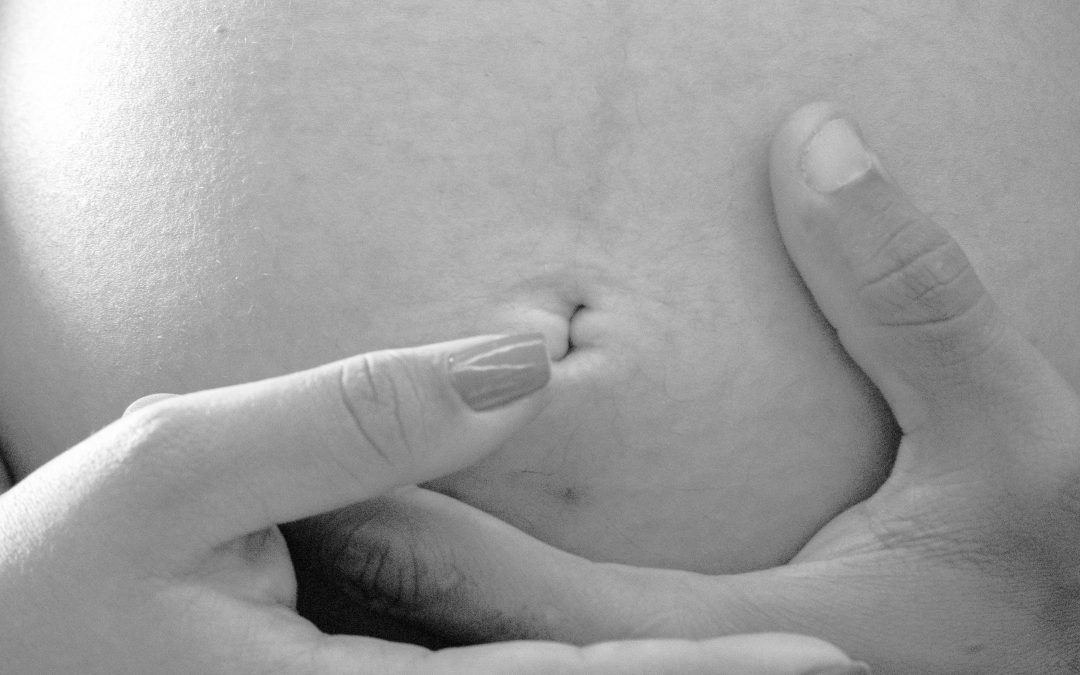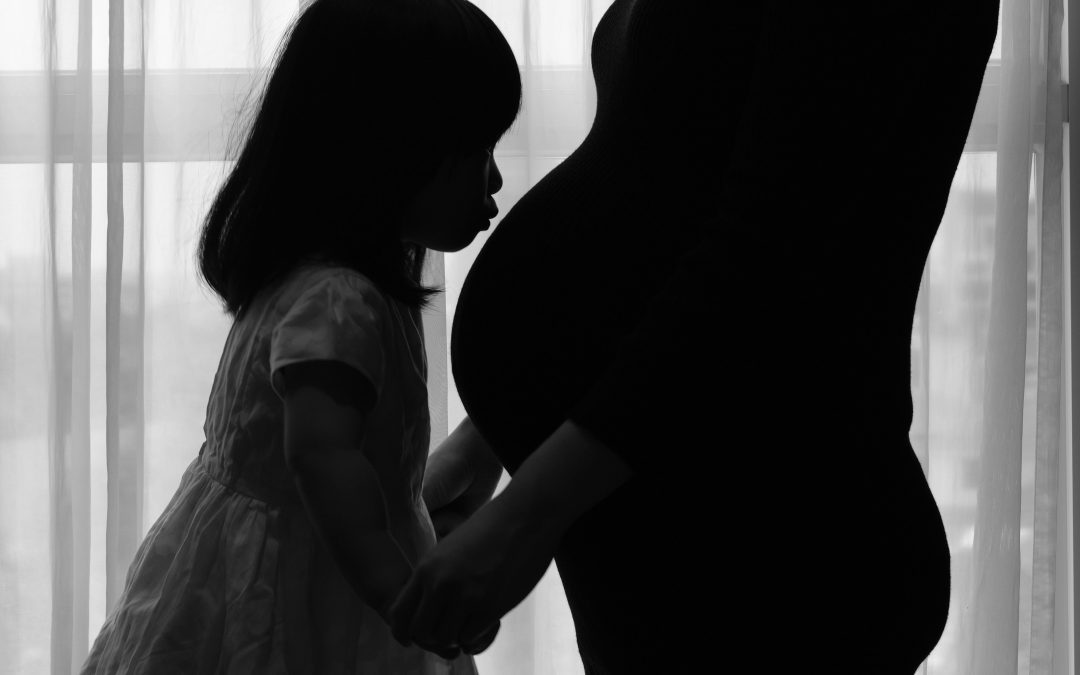
The effect of the COVID-19 pandemic on pregnant women and new mothers
Written Thought Piece by Catherine Mallouh
‘Working with these women has felt like a unique opportunity, despite the dire nature of the situation of the pandemic. Helping women to grow into motherhood in these conditions, and to relieve their distress, opens the door to a more solid mother-infant relationship, and reduces the sense of anxiety, fears and depression.’
“It should be noted that mothers who have it in them to provide good enough care can be enabled to do better by being cared for themselves in a way that acknowledges the essential nature of their task.” – Donald Winnicott
The transition to motherhood is a complex emotional task, a developmental stage in its own right, navigated with more or less difficulty depending on each woman’s psychological makeup, maternal identification(s) and internal conflicts.
Winnicott wrote vividly about the mother’s sensitivities and identification with her newborn, giving over to her infant in a way that allows for the newborn’s developmental capacities to unfold (Primary Maternal Preoccupation, 1956.) How have the particular conditions of the pandemic affected maternal states of mind as well as the environmental support that allows for a mother to develop into her role so that she can provide “good enough care?”
In my private practice, I work routinely with women who are pregnant or after the birth of their babies, both in psychiatric consultation around medication and psychoanalytic psychotherapy. Women of diverse backgrounds are referred to me by their obstetricians or other colleagues. Sometimes, they find me themselves.
They are often in acute distress, struggling with anxiety and depression.
They are often in acute distress, struggling with anxiety and depression. Since the pandemic, I have seen women affected by this threatening and ever-changing environment and have been struck by how some women have been resilient under these circumstances, and how for others, the effects of the pandemic are more emotionally disruptive. Working by Zoom has been something that I have adapted to, after a period of concern regarding whether I could really help women in such acute distress without more direct contact, including seeing them with their babies in the room with me. At the same time, this type of work has also allowed some women with newborns and other children at home to access care more easily.
Fear of infection, confinement at home, limited ability to get help and support from friends and family and the complicated transition back to work while still at home are some of the issues that I have heard about from the women I am seeing. For some women who are relatively secure in their mothering capacities, they are able to adapt to both confinement and the limitations in support and can focus on the pregnancy and caring for the baby well enough. This isn’t to say that they don’t feel a sense of stress at times. Women face changes in the nature of their pregnancy care with fewer visits, some by telemedicine and delivery with only one person they know in attendance. Women also face caring for a newborn with other children at home rather than at school or daycare. They acutely feel the loss of visiting parents and friends to help them and have to bear the sadness when grandparents cannot see the new baby.
Other mothers are more vulnerable, and for whom pregnancy and caring for a newborn invokes emotional conflict, and in particular, ambivalence, or intense anxiety and whose capacities may be compromised or inhibited to begin with. For them, environmental and emotional support is crucial so that they can grow into motherhood. The sense of threat and deprivations created by the pandemic can mirror or amplify their internal conflict and limit the resources they can draw upon to ameliorate these struggles.

Photo by Isabella Angélica on Unsplash
Fears of infection and separation
The possibility of becoming seriously ill, transmitting an infection to the baby in the womb and possibly needing to be separated from the baby at birth is quite frightening. Women have had acute fears of delivering alone, particularly when there are more restrictions around about who can be in the hospital and delivery room. One mother likened it to giving birth during wartime. The fundamental unconscious fantasy of damaging or harming the baby is now concretely present.
One mother likened it to giving birth during wartime. The fundamental unconscious fantasy of damaging or harming the baby is now concretely present.
For women who have had a previous late-term pregnancy loss, or a stillbirth, this can be especially terrifying. After such a loss, fears of harming the baby or the baby’s death at birth are no longer in the background. They already have had the harsh experience of needing to separate from a baby. One mother with anxiety and ambivalence after having had a second baby was frightened about contracting the COVID virus while travelling to see family and was anxiously thinking about whether she would be able to breastfeed her baby for fear of infecting it. So the fears of harming a completely dependent infant, are taking a form that is both tied to reality and intermingled with pre-existing anxieties.
Another mother had a medically traumatic birth experience with significant anxiety and somatic symptoms afterwards which were related to her birth experience. She had fears of dying, including fears about the effects of being infected by the virus with her body already feeling very fragile. She also worried about her bond with her baby and had underlying conflicts about becoming a mother and caring for an infant, which we have tried to explore and disentangle in the shadow of the viral threat.
Mothers who are facing infertility worry about contracting the virus and becoming pregnant but feel compelled to proceed as time is passing, creating a background of both hope and fear. More recently, some women I am seeing have been wondering about planning their pregnancies around the anticipation of a vaccine, not sure if they should wait or proceed.
It does seem that even for vulnerable women, if they have a chance to work through their anxieties in treatment, and can get through their delivery well enough, or feel the therapist’s support in the postpartum, they can turn their attention to the care of their infant.
Confinement and isolation in pregnant women
It is notable that the term ‘confinement’ has been used for a practice after a baby is born. It is a period of time staying at home which is sometimes a culturally mediated practice or medically advised. It also signifies the kind of dedication that is needed to care for an infant in the early months. With the measures taken to prevent the spread of the COVID virus, this period of confinement is now beginning in pregnancy, and extends into and beyond the period just after birth. For women who are ambivalent and anxiously feel a threat to or the loss of their identity during pregnancy, needing to be confined at home before their baby arrives, amplifies their deeper anxieties of being taken over and trapped by their baby’s needs.
For many of these women, pregnancy is a final chance of freedom, and while this is true for most parents, when this is in the context of ambivalence, this freedom has greater urgency. Under the current conditions, the inexorable march towards delivery feels accelerated and not necessarily welcomed. Sometimes, ambivalence regarding the pregnancy can spontaneously emerge, but in some cases, it needs to be separated out, as the anxieties related to staying at home are explored.
During the pandemic, new mothers cannot necessarily call upon their families to help them. They and their partners have to face caring for a baby alone. Significant post-delivery anxiety and depression can be exacerbated by these circumstances, or for more fragile women, this isolation may be a precipitating factor. They cannot rely upon their mothers in a way that would support and help them in both the needed identification and in forming their own maternal identity. If they are depressed, the lack of both practical and emotional support adds to the burden of the condition for both them and their partners. The support and understanding provided in psychotherapy are crucial to help these women make their way and bear their baby’s absolute dependence.
Therapy gave them the chance to understand their deeper anxieties about caring for a baby.
Several mothers who were just recovering from significant postpartum depression with their first baby found the isolation and loneliness involved due to the pandemic stifling and oppressive as they were home with their babies. Although they were recovering from their depressions, they still felt the strain of the baby’s needs, and they had lingering fears about their ability to care for the baby. For them, being at home with a baby all day without respite, while their partners were working, required fortitude. Therapy gave them the chance to understand their deeper anxieties about caring for a baby. These women eventually came to feel that having the time with their infants without other concerns or distractions was deeply meaningful. I think this meant even more to them given their very early experience with the baby was overshadowed by their depression and anxiety, something they looked back on with guilt and sorrow. This time at home was a chance to build their relationship with their baby after this devastating experience.
The return to work
All parents working from home currently face challenges, and women generally take on more of the burden. In normal circumstances, a mother who is returning to work after giving birth to a new baby feels her own guilt and anxiety. This is something most working mothers navigate so that these feelings resolve. Mothers with postpartum anxiety, however, are already prone to guilt and having a new baby whom they will leave to return to work, is especially fraught.
Needing to work while being at home, hearing a baby crying that they will not go to is even more difficult. On the other hand, if there is no one else to care for the baby, this makes work impossible. One mother with intense anxiety and some ambivalence fearfully anticipated this situation, and when the time came, continued to feel immense guilt about not going to the baby even though she had a helper at home, and often interrupted her work to go to him. This magnified her insecurities about being incompetent at both motherhood and her job.
Other mothers who need to have their children in daycare so that they can work, face the fear of their baby contracting COVID and find themselves anxiously considering and reconsidering their decisions around care.
For women who lose their jobs as a result of the pandemic while planning for pregnancy or during pregnancy, and who valued keeping their careers as a way to navigate motherhood, particularly if they have fears around dependency, are suddenly thrust into the sole identity of a mother. Their anxieties about dependency come forward more strongly, and they feel bewildered about who they are supposed to be now and what this means for their professional identities. In therapy, this is an opportunity to explore these anxieties about dependency and their often conflicted identification with their own mothers.
Working with these women has felt like a unique opportunity, despite the dire nature of the situation of the pandemic. Helping women to grow into motherhood in these conditions, and to relieve their distress, opens the door to a more solid mother-infant relationship, and reduces the sense of anxiety, fears and depression. I think, however, there is still much we will be learning about the effects of the pandemic on pregnancy and early infant care.
See our interview with Dilys Daws, Child & Adolescent Psychotherapist, in which she discusses the challenges of parenting, motherhood and fatherhood https://mindinmind.org.uk/interviews/dilys-daws
View more in-depth thinking from our guest bloggers on our Thought Pieces page.





